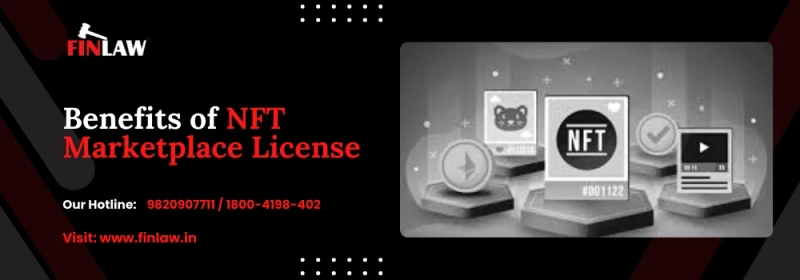To operate the NFT marketplace, a legal license is necessary. The advent of NFTs has resulted in the development of a brand-new class of assets. Although restrictions apply to digital assets, they are not complete enough to protect all of them. Therefore, obtaining an NFT marketplace license is essential for a user to safeguard their creative endeavors, financial investment, and content.
What exactly is an NFT marketplace license?
In essence, the NFT marketplace License is a user agreement. Any NFT creator can copy and paste this license into their terms of service to restrict what customers can and cannot do with their NFTs. Process easing is possible with NFT Marketplace Consulting. If you sell a digital copy of an artwork, you must mint an NFT, which will be linked to that particular piece of digital artwork. The buyer will receive token proving ownership of the NFT, and the token will be recorded on the blockchain. The examples are real digital work, piece of art, picture, video, an audio file, etc. The distinctions between the token contract and the associated digital asset are understood by NFT professionals who have experience with copyright licensing. The NFT marketplace keeps account of all transfers and events related to the digital asset.
Commercialization of NFT
A user gains the following advantages when an NFT marketplace license is included in the NFT's terms of usage:
Making money off of NFT art is easy.Users can move their NFTs to any ecosystem, market, or digital wallet that supports blockchain technology.Better Security for Content Creators: Before the advent of NFTs, digital assets were restricted by regulations like copyright laws, making it difficult to make copies of movies or read e-books in prohibited regions.
Digital locks can be useful in some situations since they let authors make money off of their work while prohibiting piracy. Locks, on the other hand, limit what artists can and cannot do with their belongings, preventing them from freely expressing themselves. NFT marketplace licenses prohibit the improper use of NFT art to protect creators. The objective is to establish true ownership without severing the links that bind NFT developers.
Modifiable art loses its originality. Additionally, the NFT marketplace license requires that NFT-based interactions cryptographically confirm the owner of the asset user. The idea of ownership would be obsolete if any NFT could be utilized by anyone.
Types of Licensing: As technology advances, regulation is becoming more and more important. Similar to this, given the expansion of the Metaverse and the Bitcoin market, regulation is necessary to safeguard your possessions, money, and works of art. There are now two licencing categories for the NFT marketplace.
All NFT artwork is eligible for this license. It's a basic interpretation of the agreement that artists are supposed to rely on. It gives token owners numerous rights, including economic rights, while allowing writers to keep some rights exclusively for themselves. An artist who creates NFTs can always utilise the NFT public license to acknowledge their work, and that is sufficient. It is only suitable for digital art, though.
Specific NFT License: An NFT marketplace license agreement contains a detailed description of each party's obligations and rights. The author of the NFT keeps some rights and gives or grants others to the token holders. Only the corresponding tokens should be able to transfer rights under an NFT.
Before the NFT may be sold on the Marketplace or moved to another ecosystem with that priority in mind, the Tickets Creator may explicitly state how the License must be written.
The artist or creator might increase interest in the NFT by elaborating on its concept. It requires displaying several supporting documents to potential investors and buyers. This kind of documentation is essential since it outlines the work that was created and outlines how it differs from other NFTs.
The purchase and/or repurchase of NFTs is made possible by at least three main categories of markets. Open marketplaces, curating marketplaces, and exclusive marketplaces are a few of these. There are still further variations, and more are probably on the way. In the article that is attached, we look at some of the variations between these marketplaces' business models and terms for granting licenses, and we explain why IP owners who grant licenses for their intellectual property to NFTs frequently have the best results by drafting their licenses specifically for use in connection with the sale of their NFTs. With an NFT marketplace license, you might be better able to compete lawfully in the market. It is essential to carry on with your journey with non-fungible tokens.
An NFT marketplace license is necessary to stay current with market trends. Even with these "simple" NFT licensing standards, several legal concerns can still develop. There is a good chance that some of the present licenses will result in legal action.


